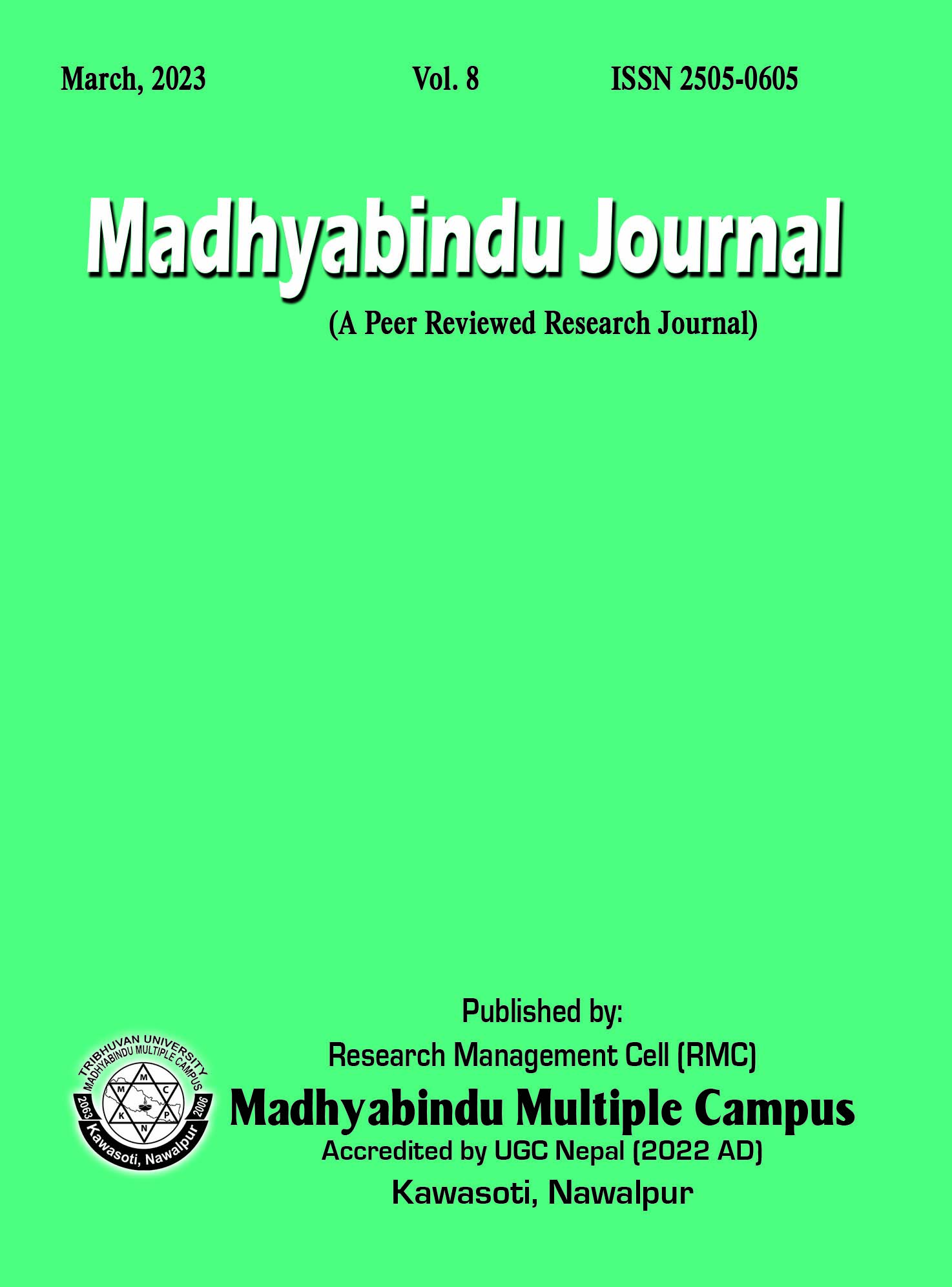Post Method Pedagogy: Opportunities and Challenges in EFL Context of Nepal
DOI:
https://doi.org/10.3126/madhyabindu.v8i1.56885Keywords:
Post method, Pedagogy, Criticality, Nepali ELT, ImplementationAbstract
The purpose of this article is to familiarize the popular concept, Post Method Pedagogy, that has been emerging in the field of English language teaching and its importance in a developing country like Nepal where English language is regarded as the foreign language. The idea of post-method pedagogy was first put forward by Kumaravadivelu in 1994. It is an attempt to go beyond the quest for the best method best restrictions in language teaching. Pedagogy in this premise is not limited to classroom strategies, institutional materials, curricular objectives, and evaluation measures, but also covers traditionally overlooked areas such as historical, political, and socio-cultural experience. It is a three-dimensional system with three pedagogic parameters: particularity, practicality, and possibility. The parameter of particularity rejects the notion of a perfect method and instead emphasizes that teachers’ critical awareness of environmental factors should be the primary consideration for language pedagogy. Next, the dimension of practicality is presented as a way for teachers to develop in their practice by theorizing from their practice and practicing what they theorize instead of relying on external sources of knowledge. Third, possibility stance emphasizes that, via critical pedagogy, social inequality can be exposed, the status quo can be questioned, individuals have the possibility to reform their identities, and social transformation can take place. The boundaries of the three parameters are somewhat unclear and the characteristic features of these parameters overlap. They shape and are shaped by one another. They interact with each other. However, it can be said that they together constitute the features of ELT classrooms in the Nepalese context with some basic challenges.
Downloads
Downloads
Published
How to Cite
Issue
Section
License
© Madhyabindu Journal
The work is simultaneously licensed under a policy and procedure of Madhyabindu Journal, which permits others to distribute the work with an acknowledgement of the work's authorship and initial publication in this journal. With an acknowledgement of its original publication in this journal, authors can enter into separate, extra contractual arrangements for the non-exclusive dissemination of the journal's published version of the work (e.g., posting it to an institutional repository or publishing it in a book).




